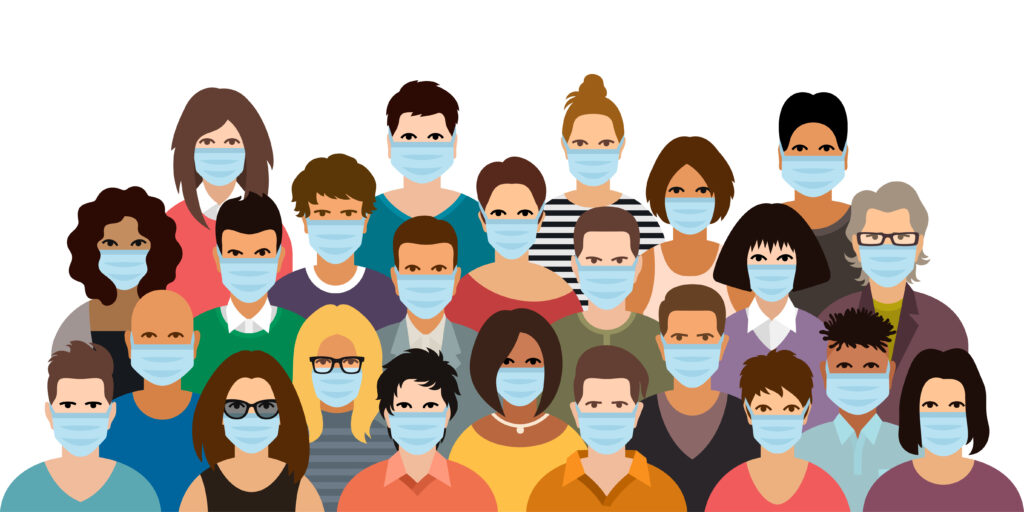The hyper-transmissible Omicron variant has changed the game, so to speak. An encounter which may have presented a lower risk for transmission of the original variant of SARS-CoV2 may confer a moderate risk for transmission of Omicron because this new variant is so contagious, comparatively. To reduce this risk, public health officials have begun to recommend that non-healthcare professionals make the transition away from cloth masks to more protective medical-grade masks. Cloth face coverings served a crucial role in the earlier seasons of the pandemic, preserving medical-grade masks for front line workers during a time of inadequate supply, and allowing the wearer a means of containing his/her respiratory secretions in an effort to protect others. However, high filtration respirators, which provide gold-standard protection against exposure to droplets and airborne particles, are widely available to U.S. consumers. Though the term “respirator” can be daunting, they are really just medical-grade masks.
Satisfactory: Cloth Masks
Cloth masks are much better than no mask at all. They aren’t particularly useful in the way of protecting the wearer from infection but, if worn correctly, they perform decently at containing the wearer’s respiratory secretions to protect those in proximity should the wearer be contagious. Indeed, some cloth masks (those with a snug fit, two layers of cotton with a third layer of non-woven fabric, a nose wire, and adjustable ear loops or straps) are able to rival the filtration effectiveness of surgical masks. If you are going to stick with a cloth mask, be sure that it meets the above specifications, and know that a mask is only as good as its fit.
Better: Surgical Masks
Generally better than cloth masks, but less effective than the respirators, is the surgical mask. Surgical masks feel a bit like paper, are folded into pleats, and are often blue (but sometimes yellow) on one side and white on the other. Surgical masks are a great option for those who experience claustrophobia or anxiety when wearing other types of masks, as they are especially lightweight. Furthermore, while respirators are currently nearly exclusively available online, surgical masks can be procured at many grocery stores and pharmacies, making them a more viable option for those who are not computer sawy or otherwise do not make retail purchases on line. Surgical masks are less costly than respirators and should be disposed of and replaced daily, or immediately, if damp or soiled.
Best: Respirators (N95, KN95. KF94)
The best masks (these are the ones referred to as “respirators” in the medical field) are the N95, KN95, and KF94. Typically, they are white (though black is becoming common, and many worn in the hospital are a blue-green shade), fold down the middle, and are shaped somewhat like a beak when worn. N95, KN95, and KF94 respirators tend to cost approximately $1 per mask and are readily available for on line purchase. Respirators are technically disposable items and, for ideal effectiveness, should be replaced daily.
As we face the wrath of the Omicron variant, please hunker down and renew your commitment to practicing those mitigation measures that we know work. Please continue to wear your mask in public indoor spaces, avoid crowds, maintain distance between yourself and others, and keep your hands clean.
Taryn Tindal, RN, on behalf of the Deerfield Leadership Team
